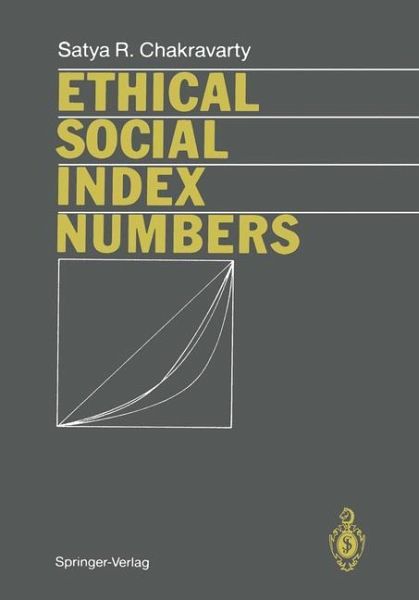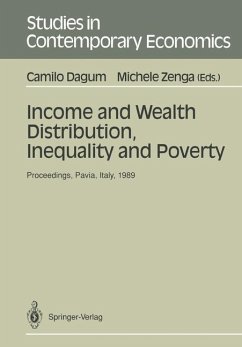
Ethical Social Index Numbers
Versandkostenfrei!
Versandfertig in 6-10 Tagen
76,99 €
inkl. MwSt.

PAYBACK Punkte
38 °P sammeln!
In this book we are concerned with income profile based ethical social index numbers. An ethical index is designed from an explicit social evaluation function with a specific purpose in mind. For example, an ethical relative inequality index determines the fraction of total income that could be saved without any welfare loss if society distri buted incomes equally. Ethical indices contrast with descriptive indices which are de rived without using any concept of social welfare. Needless to say, ethical indices are not meant to supplant descriptive indices, rather they are constructed with diffe...
In this book we are concerned with income profile based ethical social index numbers. An ethical index is designed from an explicit social evaluation function with a specific purpose in mind. For example, an ethical relative inequality index determines the fraction of total income that could be saved without any welfare loss if society distri buted incomes equally. Ethical indices contrast with descriptive indices which are de rived without using any concept of social welfare. Needless to say, ethical indices are not meant to supplant descriptive indices, rather they are constructed with different aims. We begin Chapter 1 with a formal discussion on the concept of a social evaluation function. In the main body of this chapter we consider the problem of ranking income profiles using a social evaluation function. In Chapter 2 we set about analyzing alter native approaches to the measurement of inequality. In Chapter 3 we focus our attention on the Gini index, the most frequently used index of inequality, and its extensions. In Chapter 4 we formulate the notion of an ethical distance function that measures welfare of one population relative to another. Chapter 5 is devoted to quantifications and discussions of alternative definitions of relative deprivation put forward by Runci man(1966).














